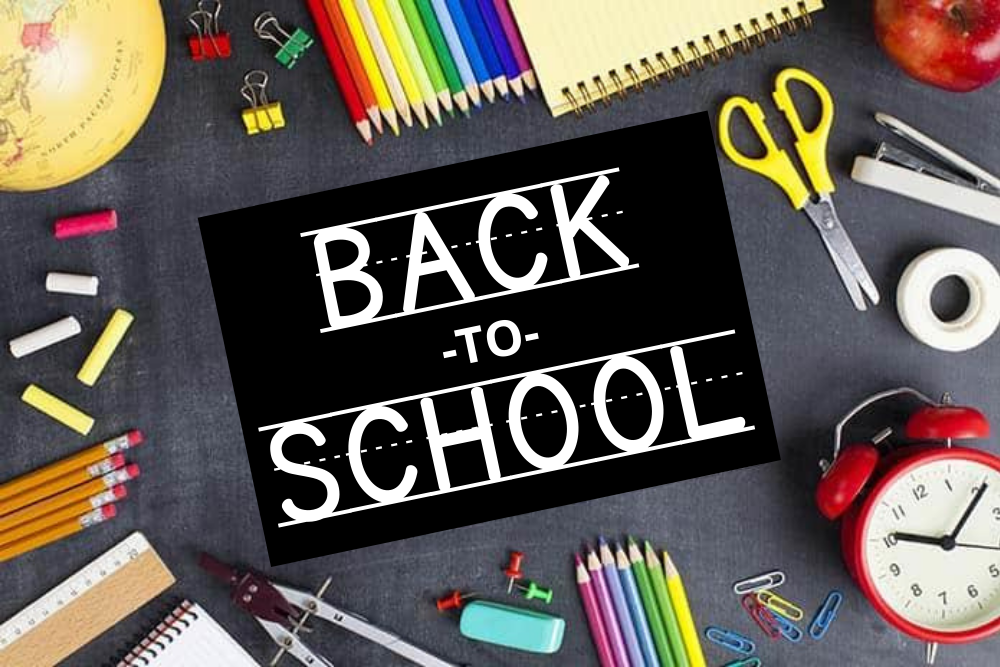Start the Year Off Right!- What to Do at Home to Help Your Child Succeed In School
With a year and a half of virtual and hybrid learning, many of us had to adjust to supporting our children while they learned at home. With the return of full-time, in person learning, we will need to adjust again. It will be important to create an environment for your child at home to boost success. This means establishing clear routines for your child, helping your child stay organized and monitoring their progress. Try the following tips to help your child succeed!
Does your child have supplies they need for school and a space at home to work?
It’ s important that your child has all their school supplies including their chrome book. If you have any difficulty getting what your child needs, please reach out to your school staff. Having what they need at the outset of the year will allow your child to feel more confident, prepared and excited for school. It will also prevent them from falling behind because they lack what they need.
Many of you may still have a set up at home from when your child was learning virtually. While your child will not be learning virtually, it will be important that you keep a set place for them to complete homework, study and to store materials not needed everyday at home. Ideally this should be a quiet place free from distractions like devices, video games and siblings that may interrupt them.
What routines do you have in place at home to support your child? Established routines help your child to take care of their physical health, organize their time and workspace, and reduce stress.
In the Morning: Set a regular wake-up time and morning routine. Allow ample time to get dressed, eat breakfast (if your child eats breakfast at home), and to mentally prepare for the day. When a child’s morning is calm, it sets the tone for the rest of the day
After School: Establish an after school routine. This is very important in helping your child manage their school work. Decide with your child what the afternoon should look like? When will your child do their homework? Some children do best beginning their homework right after school, others do better with some time to decompress first. Figure out with your child what works best. The after school routine can include homework, studying for upcoming tests, time for chores, and time for relaxation and fun.
It will be key that your child prepare for the next day as part of their after school routine. For example, placing homework or needed materials in a bookbag or submitting assignments via google classroom, cleaning up their work area, and finding and setting out a uniform for the next day can save time and reduce stress in the mornings.
At Night: Set a regular time to go to bed- even teens can benefit from a bedtime, because they need adequate sleep to function, so encourage your child of any age to go to sleep at a set time.
Set a routine for you to follow with your child or that older children can follow on their own which will help them to sleep. Help your child practice good sleep hygiene habits such as avoiding screens late at night, caffeine, exercising at night and other forms of stimulation. Encourage your child to listen to soothing music or to read to aid with sleep.
Why Routines & Structure?: Maybe you aren’t one for structure or routines. You can make your child’s routine as flexible as you would like, but remember, structure at home creates a sense of stability and predictability. This is important for healthy development. Having clear expectations of what to expect and when to expect it has many benefits for your child. It creates a calmer home atmosphere and teaches your child valuable skills when they learn to follow a routine.
Your child will learn from a young age how to have self-discipline and to manage their time. For example, with no routine in place for homework, it’s easy for your child to get distracted by things that feel more fun, and homework may be started late or not at all. This can cause frustration and anger for you as a parent and distress for your child. With no preparation for the next day, mornings can be wasted looking for a uniform shirt, a lost shoe, etc., adding unnecessary stress to your morning.
Helping your child to understand how to be organized allows for balance in their lives because they learn to make time for work and play. They learn the value of accomplishing what needs to be done first before engaging in a preferred activity. They learn that structure can be key in their school achievement, a way to manage stress and accomplish goals. These skills will be important now but even more so for their future success.

